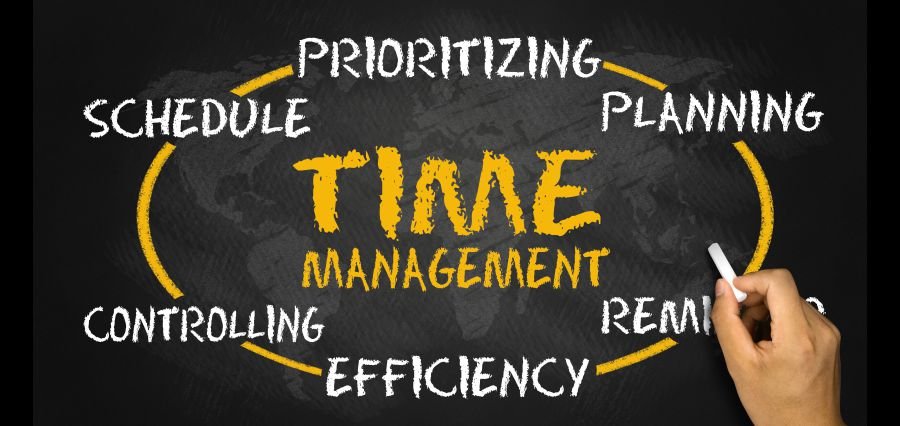Time is commonly referred to as the most valuable thing we have; still, it remains the thing that most people find it hard to manage. Between incessant notifications ringing, never-ending to-do lists, and racing priorities, it is quite difficult not to feel that the day is stealing away right before your eyes.
That is exactly why finding and applying very good time management methods is more than just a productivity trick – it is a life skill. If worked on correctly, these techniques can make over your interaction with your work, lessen your anxieties, and allow you to create independent time that belongs to you and the things that you deeply care about.
The Reasons That Time Management Required Such a Great Significance
Just before we get into any practical strategies, one point of understanding that underlies the entire time management debate is why it is so critical. Inefficient time management often leads to laziness, missed deadlines, and the feeling of being overwhelmed frequently.
Alternatively, if time management were in your hands, you would then be scheduling your days, which would automatically inspire good moods and enhance the ability to concentrate.
So, what is not only getting more tasks done but more importantly having the chance of mastering your day instead of it controlling you. The positives of time management are that they do not necessarily require putting in more effort; it is more like working wisely.
Traditional Time Management Methods That Are Still Valid Today
There are various methods to complete tasks with great efficiency, but some time management methods are very successful mainly because they are practical and easily modifiable. For instance, the Pomodoro Technique allows one to fragment one's activity into focus periods of 25 minutes.
These intervals are followed by very short breaks. The technique is very suitable for those who want to avoid distractions and keep a high level of concentration through long sessions. Another widely recognized method is the Eisenhower Matrix, breaking down duties into a 4-quadrant scheme: urgent and important, important but not urgent, urgent but not important, and neither. It is highly effective to set priorities, making use of this approach, and tough to avoid wasting time on trivial things.
What we still have not mentioned is Time Blocking – one of the several instruments for achieving great results used by the highest achievers. The concept here is scheduling for different tasks or activities, the specific blocks of time that will be used during the day. Deep work, planning, and, in general, work and rest time can be deliberately allotted in specific time slots instead of the endless emails or meetings dictating your schedule. In contrast to traditional to-do lists, time blocking makes it possible for the important things to do to have a place in your day, no matter what.
Modern Time Management Methods for Today’s Busy World
Technology has profoundly transformed the time management process. Distractions these days are not only physical but also digital, and that is why the modern time management methods are usually accompanied by the element of mindfulness along with the aspect of intentionality.
GTD (Getting Things Done) is a framework of time management created for people overwhelmed with all the projects they have, and it allows them to capture every idea, task, or commitment in an external system so their brain is relieved from the burden of remembering everything. This method is maximizing its potential when used together with
Another contemporary means is the Pareto Principle or the 80/20 rule. It advocates that 80% of your results mostly come from 20% of your efforts. By finding the activities that generate the most significant impact, we can target our energies in that way, rather than scattering them in various directions. As straightforward as this idea seems, it is quite transformative if one applies it all the time.
The Role of Time Management Tools in Success
While methods are the core of your strategy, time management tools are like the backstage crew that work behind the scenes to make everything run smoothly. They not only allow you to schedule your activities, keep track of your to-do list, and even bring your most important activities to light.
For example, Trello, Asana, and Notion are apps that facilitate communication and coordination both within a team and an individual, in addition to keeping the flow of the projects. On the other hand, programs such as Rescue Time or Toggl keep track of your everyday time allocation and, thus, they can uncover patterns of mismanagement of your time without you consciously realizing it.
Just to give an example, a digital calendar, if used with a method like time blocking, can be a revolutionary tool in your life.
The biggest factor that will help you to choose the tools in a sensible manner is the ability to stay away from clutter. It is a common mistake among many people they assume that installing numerous applications will multiply their productivity; however, the reality is that most people find themselves managing their tools more than working.
The most successful tools are the ones that you use regularly and that blend so well with your existing workflow that you hardly notice them. Always keep in mind that a tool can be as effective as the method you use together with it.
Overcoming Common Challenges in Time Management
Even though it is possible to manage time in a perfect way, it is very hard to keep up such a performance all the time. Procrastination is one of the biggest hurdles to overcome. It is not only a matter of laziness—often, it stems from fear of making mistakes, being too perfectionistic, or not knowing what to do next.
So, the solution is to divide one big task into smaller steps that you could even end with the step of starting to do it. Unforeseen interruptions are yet another problem. Things hardly ever turn out exactly as you have planned. Even with the most detailed schedule, there will always be unexpected situations and new demands to arise.
Having an amount of free time that is more than the time required for your activity will give you the chance to take in these interruptions without your whole day being thrown off.
Another problem that a lot of people have is the overexertion leading to burnout due to over-scheduling. Basically, time management techniques encourage productivity, but they must promote a person’s welfare as well. Make sure that your techniques consider moments of relaxation, moments for meditation, and free time. Though it might seem that you are being very efficient while overworking, in fact, you will face your decline in efficiency and motivation sooner rather than later.
How to Choose the Right Time Management Method
A lot of people are taken aback by the fact that it is hard to decide on a starting point when there are so many options available. There is no way of doing things that suits everyone. The best technique is to go through a trial-and-error process.
If you are a person who easily gets off track, try the Pomodoro Technique. If the greatest obstacle for you is prioritization, then employ the Eisenhower Matrix. Those who must deal with numerous projects at the same time might find GTD the perfect framework to work their way through.
You do not have to use all the methods; instead, you are supposed to find one or two that are most compatible with your working style and commit yourself to them. With time, having a system becomes second nature, and this is the point where the main advantages of time management start to unfurl.
Final Thoughts on Mastering Your Time
It is not the case that the use of time management methods means one’s life is nothing but a monotonous and tiring treadmill race where every second is turned into a productivity unit. It merely means creating balance and making sure that your time is in line with your values and goals.
Whether you work with the classical and more serious method of time blocking or today’s trendy digital time management tools, the essence remains the same: same-intentionality. The moment you seize your time; you become the master of your own life. Being productive then ceases to be an everlasting pursuit and becomes a habit that empowers and supports both your personal and professional development.
Read Also : The Educator’s Compass: Dr Rishikesh Tewari’s Journey of Purpose, Pedagogy, and Perseverance





